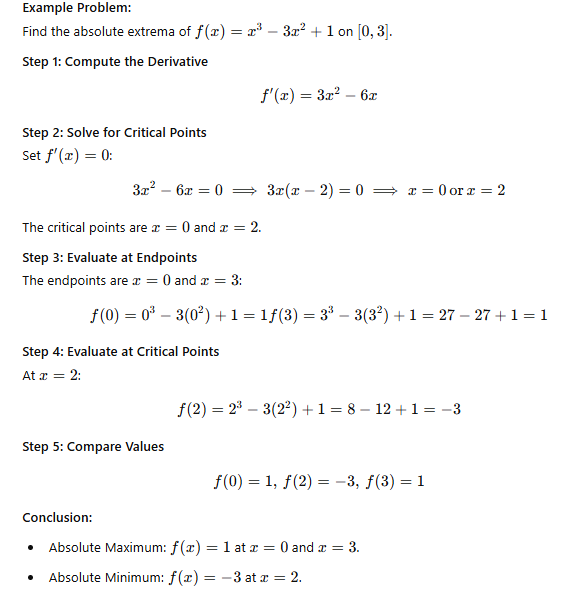How to Determine Extrema using Candidates Test
The Candidates Test is a method used to determine the absolute extrema (maximum and minimum) of a function on a closed interval. It involves evaluating the function at critical points and endpoints to compare their function values. Here's a step-by-step guide:
1. Identify the Domain and Interval
Ensure the function f(x) is continuous on the closed interval [a,b].
If the function is discontinuous or the interval is not closed, the Candidates Test cannot be applied.
2. Find the Critical Points
Critical points occur where:
f′(x)=0 (the derivative equals zero), or
f′(x) does not exist.
Steps:
Compute the derivative f′(x).
Solve f′(x)=0 to find points where the slope of the tangent is zero.
Identify points where f′(x) is undefined but f(x) exists.
3. Evaluate the Function at Endpoints
The endpoints of the interval, a and b, are also candidates for extrema. Evaluate f(a) and f(b).
4. Evaluate the Function at Critical Points
For each critical point c within [a,b], compute f(c).
5. Compare Function Values
List all computed function values from the endpoints and critical points.
The largest value is the absolute maximum.
The smallest value is the absolute minimum.

Tips for Candidates Test
Always check the endpoints and all critical points within the interval.
Ensure the function is continuous on [a,b][a, b][a,b] for the test to apply.
If the interval is open or infinite, consider other methods (e.g., limits or analysis of behavior).